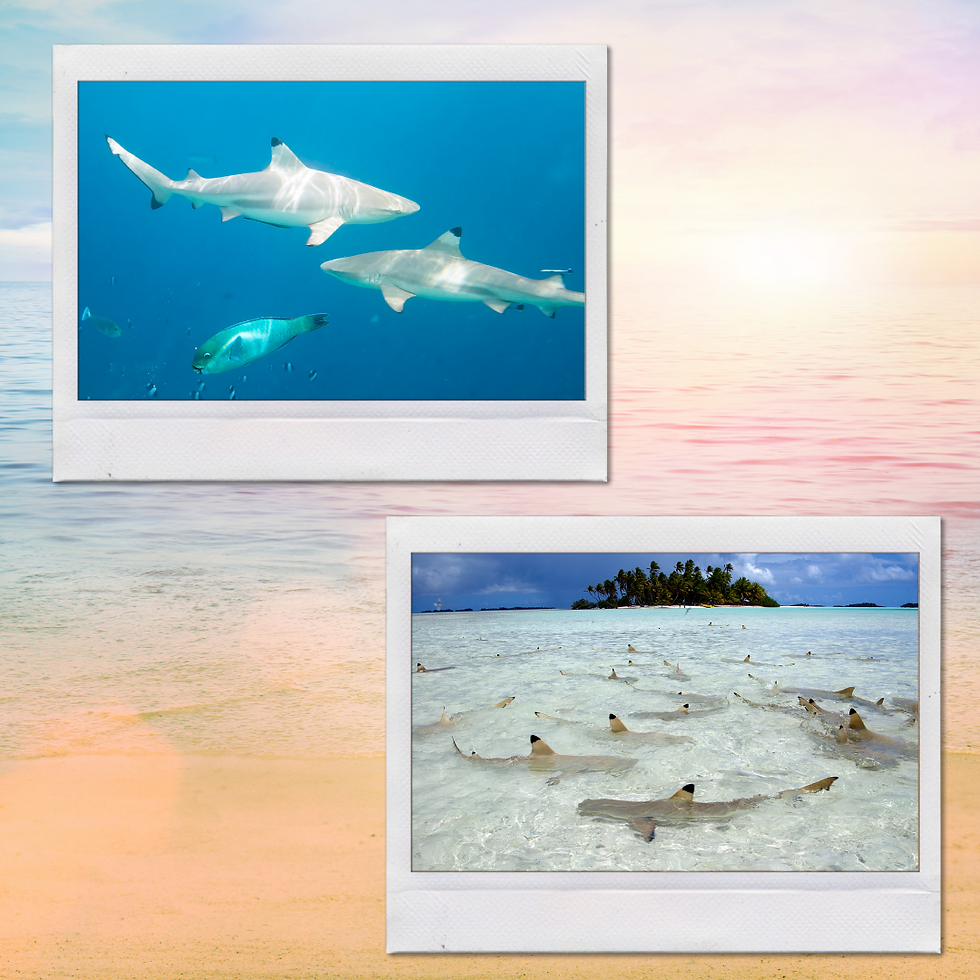The Blacktip Reef Shark belongs to the family Carcharhinidae. This species of shark inhabits the tropical coral reefs in the Indian and Pacific Oceans. They prefer shallow inshore waters and sometimes can be seen crossing into the brackish water areas (like mangroves). They can easily be identified by the tips of their fins being black (hence the name). Blacktips are often a pale grayish-brown color on top with white below and a bold white band on the sides, extending downward. They have the body type of a typical shark. They have a streamline body that allows them to gracefully move through the water but will only get up to about 5.5 ft (rare but some can reach a little above 6 ft.). The Blacktip Reef shark does its part in keeping the ecological communities running smoothly. Most of their diet consists of small fish, but they will also consume animals like stingrays, crabs, mantis shrimps and some other crustaceans, cephalopods, and mollusks, to help maintain the marine life on the reefs (there is a balance to everything). They are not a big social creature but will come together in groups to breed or do a herding hunt where they heard a school of fish near the shore and eat in the masses. Since it is not unusual to see these sharks near the shore, it is likely to encounter humans often (one of the pictures shows how close they can get. The video shows the same!). Although the Blacktip Reef shark is very timid and scares easily, there are some documented attacks caused by the blacktip, but none were fatal or had life threatening injuries. It becomes dangerous for swimmers to swim in areas where blacktips are. Most will swim the other way and pay you no mind, but if your body part looks like prey, this is when they attack and quickly realize it is not food and will swim away.
#blacktipreefshark #sharks #educate #themoreyouknow #marinezoologist #marinelife #oceancreatures #animalfacts #animals #animallover #sealife #seaanimals #ocean #marineconservation #keeptheseaplasticfree #wildlifeseekers #wildlifeconservation #savetheocean #savetheplanet #marinebiology #oceanography #zoology #blackzoologist #explore #explorepage #tarimahthezoologist
🐬🐋🦈🐡🐙🐧🦦🐠🦑




.png)
.png)
Kommentit